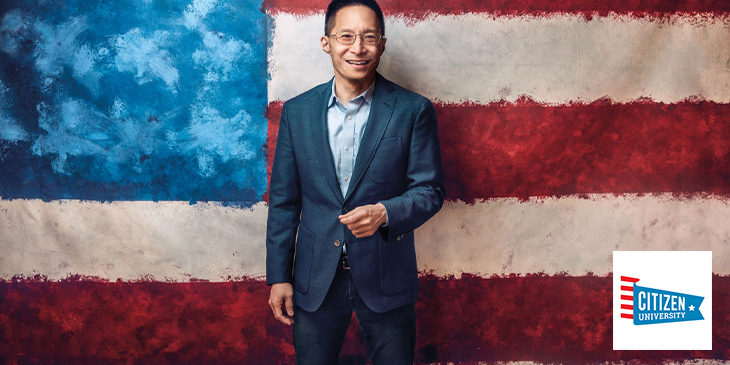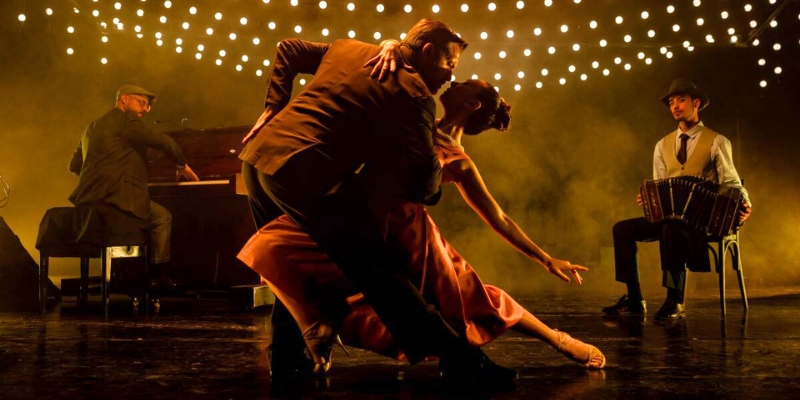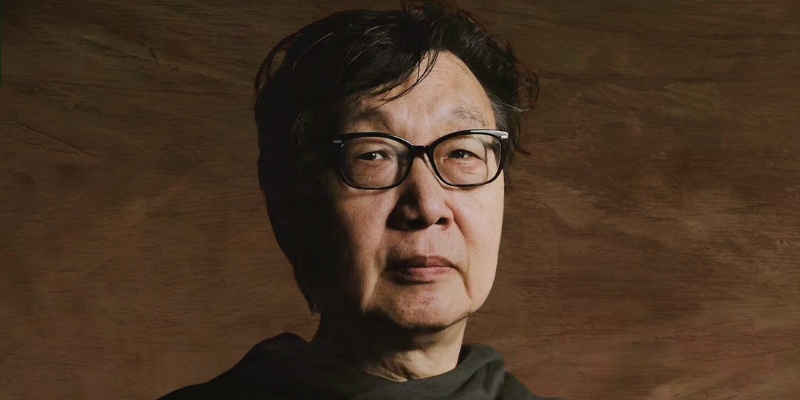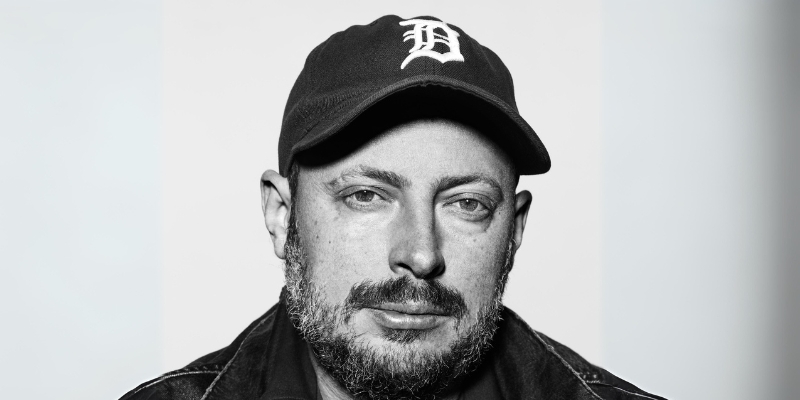At a time when quarantines are keeping us isolated from our neighbors, it’s more important than ever to help us maintain connections with our community and stay engaged as citizens. Eric Liu, co-founder of Citizen University, hosts regular Civic Saturday gatherings in Seattle to help us reflect, connect, and cultivate the kind of healthy civic traditions we need during this difficult time.
Town Hall and Citizen University are presenting a Virtual Civic Saturday on 3/28 to give civic-minded Seattleites a place to gather—even if it’s not in person. To preface this livestreamed event, Liu sat down with Town Hall’s Alexander Eby for a conversation about community health.

AE: During this time of social distancing, what are some ways we can maintain engagement with our community and feel that we’re still contributing to our society, even if we can’t do it in person?
EL: There are so many ways! Create a contact sheet for you and your neighbors—it’s a good chance to check on elders and introduce yourself (from an appropriate distance) to folks you don’t know yet. Read and subscribe to the Seattle Times—we in this area are unlucky to be an epicenter of the virus but we are exceedingly lucky to have an independent daily newspaper with such talented and dedicated staff. Circulate your time, talent, and treasure at any scale using any platform available.
AE: When health concerns are making people feel alienated from their neighbors, it’s important to remember that we’re all in this together. Right now, in what ways is Seattle (and our nation) most united?
EL: We are all realizing that when it comes to a pandemic there is no such thing as someone else’s problem. Our community is only as healthy as its least healthy members. That’s always true but most of the time society forgets it. There is no avoiding that truth now.
AE: What agencies and sectors would you encourage people to support right now? Who should we donate to? Who should we patronize?
EL: We should first make sure we help those who help us: health care workers, grocery workers, delivery workers. We can help them by pushing our policymakers and big employers to do right by all of them: living wages, paid sick leave, safer workplaces. Second, we should all get better at asking for help. Epidemiologically and economically, things are going to get worse before they get better. So it’s not so much “who should we donate to” as it is a matter of practicing mutual aid and figuring out how we can help each other.
AE: Many people are finding themselves stuck in their homes with an abundance of free time—the perfect opportunity to buff up our civic education! What are some texts at the top of your “civics required reading” list that you recommend people read during this time? Why do they resonate with you?
EL: Rebecca Solnit’s A Paradise Built in Hell is about how people come together in times of disaster and form the kind of communities that we all yearn for—and she argues that the yearning means that we shouldn’t let that feeling evaporate after the worst passes. We need to pay close attention now, during the crisis, to how we practice kindness and civic love and civic responsibility so that we can keep up those practices after the crisis.
AE: What’s a message you would want all of Seattle to hear and meditate on in the coming weeks?
EL: Society becomes how you behave.
Join Eric Liu online on 3/28 for a Virtual Civic Saturday, or check out Citizen University to explore Civic Sermons from past gatherings.


